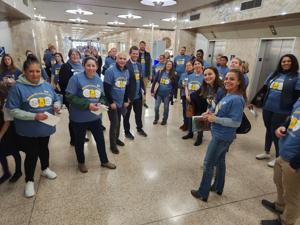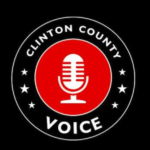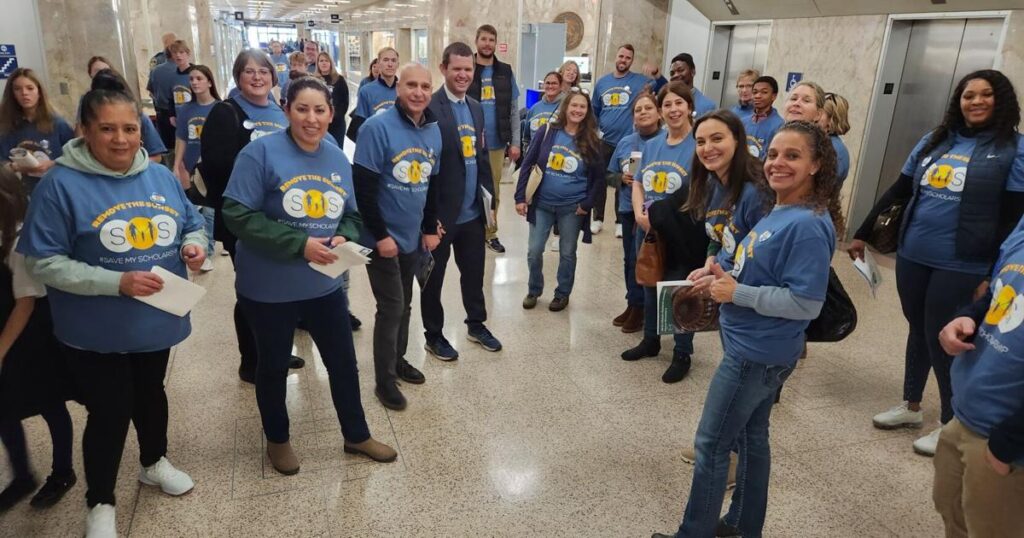
Politicians, parents and lobbyists have taken sides in the debate over opportunity scholarships for Illinois schoolchildren, as a key deadline approaches. But people misunderstand or mislabel the dividing line that separates the camps.
Many stakeholders see a clash between public and private education. The topic stirs strong emotions. But the legislation in question is neutral on this point. “Invest in Kids,” which took effect in 2018, allows donors to receive a partial income tax credit for contributions to K-12 scholarship organizations. In turn, lower-income families can receive financial assistance for their children’s education.
Under the program, families that like their local public schools can stay. Unsatisfied families can look for a better fit elsewhere. Nobody is forced to go anywhere.
Parents with resources have always obtained education for their children this way. Sometimes they pick public schools, which often means buying a house in the right neighborhood to get what they want. Other times they homeschool or enroll their children in private schools. Having money allows parents to pick and choose.
Families with limited budgets do not have this luxury. They must take what the system gives them, even if it means sending a child to an ill-suited learning environment. Opting out costs money that they do not have.
The distinction between these scenarios is not public versus private. It is choice. Some families have it, and others do not. That is the true dichotomy: Coercion versus consent. State-selection versus self-selection. Assigned versus chosen.
Lawmakers developed Invest in Kids to level the playing field. But they also included a sunset provision that keeps participating families in a state of uncertainty. Elementary and secondary education takes 13 years, but lawmakers set up the scholarship program to expire well before students starting kindergarten will complete their education.
When the program started, it had a timeline of five years. Lawmakers then tacked on a one-year extension. If they do not act again before Dec. 31, 2023, the program will die the next day, leaving more than 9,000 children in limbo about where they will go to school in August of 2024.
More than one-fourth of these students – 2,605 – come from families earning below the federal poverty level. Without an opportunity scholarship, they would be forced to attend schools that their families have tried to escape or avoid. That would be wrong under any circumstance, regardless of “public” or “private” designations.
The Illinois Education Association, the state’s largest teachers union, and its allies do not care. They prefer a captive audience. But opposing choice for marginalized families is a bad look, so opponents of Invest in Kids reframe the debate as a referendum on private schools.
Besides detracting from the central issue, their arguments flip the facts upside down.
Critics claim Invest in Kids robs “underfunded public schools” of revenue by giving children private school access. Yet the average scholarship in 2022 was just $8,340, nearly half the per pupil spending at Illinois public schools. So the math does not work. If anything, Invest in Kids takes pressure off public schools.
Opponents of the scholarship program also claim private schools operate without accountability. Again, the argument is backward.
Public schools hold public meetings and prepare public reports. But if they fail to deliver results, nothing happens. They still get state money. That is fake accountability – the kind with no consequences. By contrast, private schools must compete for customers. Unsatisfied families can take their money and walk away. That is true accountability.
All of these differences are irrelevant in the opportunity scholarship debate. Once parents have choice, they can weigh the pros and cons for themselves and decide where they want to enroll their children.
Education is too important for half-measures. State lawmakers should extend Invest in Kids or better yet, retire the sunset provision and make the program permanent. Every family deserves choice and Invest in Kids helps thousands of families get it.
David Hodges is an attorney and Daryl James is a writer at the Institute for Justice in Arlington, Virginia.




